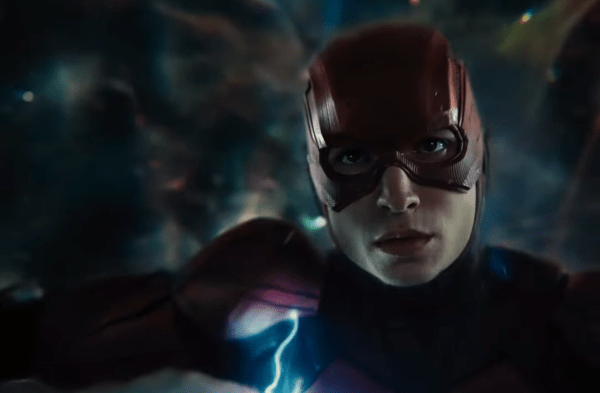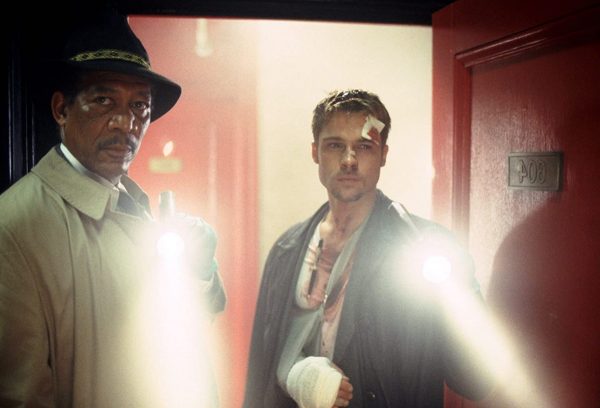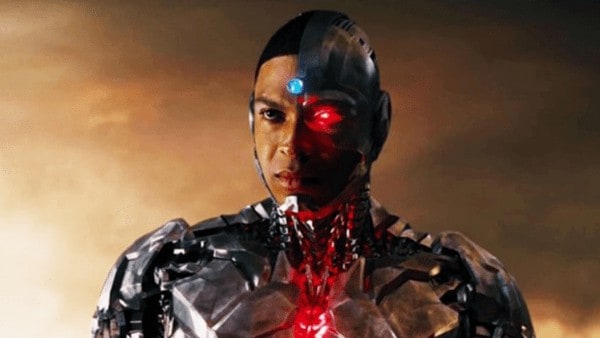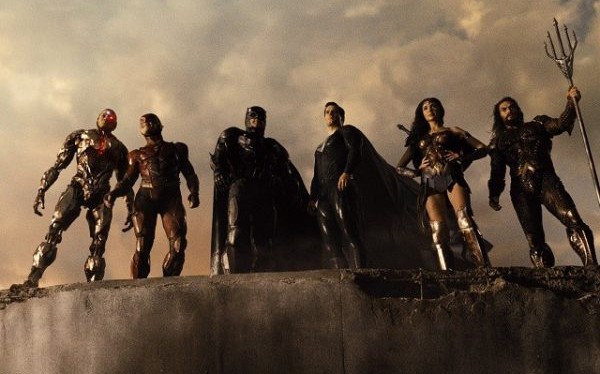EJ Moreno chats with composer Tom Holkenborg about his work on Zack Snyder’s Justice League…

Tom Holkenborg, or known to many as Junkie XL, sat down with me for an exclusive interview. During the conversation, Holkenborg discusses film scores that inspired him, what it’s like working with Zack Snyder, and which of the Justice League heroes are his favorite to compose for.
I wanted to dive into this interview and speak with you about your work with Zack Snyder’s Justice League and some early work of yours. What were some scores growing up that really attracted you? Was there a movie score that made you want to get into this?
You’re going to laugh when I say this, but the first movie score that really impacted me was Saturday Night Fever with all the disco tracks in it. They were very dark, except for The Bee Gees’ Staying Alive. But if you’re familiar with a double album that came out, that was such a hit album, all these tracks were really dark disco tracks. even Kool and the Gang, later known as the happy disco bands, but they made really dark tracks in those days.
But what I want to point out is that as I originally never wanted to be a film composer because, you know, I had an artist’s career. I was a traditional producer and engineer. I toured all around the world as Junkie XL all the way up to 2010. I had a strong interest in film scoring around 98-99. And then, when I moved to Los Angeles, I got more drawn into this. Then in 2010, I started collaborating with Hans Zimmer. And then I did my first Hollywood movie in 2013 under my own credit. So it’s a very gradual process.
So it wasn’t like growing up as a kid just listening to film scores. I was collecting film scores on vinyl, though. Since I was a kid, I was drawn to music that was not traditional. So in 1981, you couldn’t wake me up in the middle of the night for the Star Wars theme, to be honest, you know, because it was too traditional. I did think it was an incredible composition, and I still feel that it’s one of the best compositions ever written.
I was always more drawn to, let’s say, Blade Runner or Brad Fiedel for The Terminator. Even the movie Se7en from David Fincher and that incredible end title with Nine Inch Nails and David Bowie. I mean, like that was the stuff I was really drawn to, like really aggressive sounds. Dark sounds. Electronic sounds.
You brought up your history as an artist there. You made the very iconic A Little Less Conversation remix. Did your work in electronic music kind of influence your work as a composer? Do you find the processes to be a little similar, or are they completely different?
Well, music is music. But the process is completely different. So my very first instrument was actually a drum kit. That’s why rhythm has always had such a strong impact on all the music that I did. Even in my teens and my twenties, Junkie XL was very strong, rhythm-driven. And primarily, I was embraced by the dance community, electronic dance music community around the world.
With Little Less Conversation, even the original song already has a strong funky beat in it, you know, and I emphasized it. It’s actually incredible. I get so much credit for that remix because, actually, I didn’t do all that much, you know, the original was so good. But don’t tell anybody that it was already there. I just brought everything out. I made it sound like it was made in 2002.
My film scores are driven by a rhythm as well. And I think what I really contributed to film scoring is the sound of drum kits as orchestral percussion, instead of like Timpanis, which were already overused in my humble opinion. By using, for instance, deep drum kits for Man of Steel, that was a really fresh voice in percussion and film scoring. And I studied it more when I did 300: Rise on the Empire. So by Mad Max, I perfected how extreme you can go with a bunch of drum kits. And it’s still there; I mean, even in the Justice League, there’s a lot of that.

What was the process of working on the Justice League score? Did you have any influence with Zack Snyder? Was this creating your own vision for each one of these heroes?
Well, Zack and I obviously talk a lot. We are also really good friends, and there was a lot at stake with this movie, now labelled The Snyder Cut. There was not only a petition happening where people were demanding his cut, but there was a secondary petitioning happening where people were demanding the score; they wanted the release of the score.
So when this project got greenlit, there was massive pressure on Zack to deliver the real deal. And there was massive pressure on my shoulders as well. Like “you better step it up because, you know, the fans are now waiting for us.” So we both had to turn our bodies inside out to find the best we had, which meant that Zack had to look at the cuts that he had and figure out what could be better. “Can that be better? Can this be longer, or should it be shorter?” Feeling like a maniac. He was working on that for nine months. And at the same time, like a maniac, I was working on the music, just seeing where I could perfect it. And I started over; I’ve said that in multiple interviews already, but I started from scratch and not using any of the material I did in 2016.
We talked a lot, but not as much as people would think for a massive project of this magnitude. And it was incredible. We maybe had 10 or 12 conversations in nine months about music. And he was basically thumbing up everything, just adding, “it’s great, but could you make it more extreme or give it more depth and go for it.” It was really compact, but also because he had his hands on various different departments. The way that Zack works, he combines a team together in which he trusts each and every person for the full hundred percent. To become part of a team with Zack is almost nearly impossible, but once you are there, that’s how it kind of works.

Was there a hero you particularly loved working for on this film? I loved your work with The Flash specifically.
Well, The Flash would be one, and Cyborg is the other. Not because they are my favorite hero characters in a movie, because that’s Batman. I grew up with Batman and especially the Frank Miller periods of Batman. That is what I dream of. You know what I mean, that dark, moody approach of Batman. That is my favorite. Not the eighties Tim Burton or even the sixties. That’s not my Batman. My Batman is Frank Miller.
But the drawbacks of working on Wonder Woman, Batman, and Superman is they have such a rich history. In film culture, in TV shows, and in pop culture. Look at the list of famous composers that already worked on these characters in the past. It’s scary. Flash and Cyborg are new; they’re not new characters in the DC world because people know him from the comics, but this was their first time on the big screen.
That meant for me a blank slate. So, now people have been responding so overwhelmingly towards the Flash theme that the next composer who will write something for The Flash movie is going to face the same issue that I was facing. When I was writing something new for Batman, Wonder Woman, or Superman, it’s always being compared with what Hans Zimmer did or with what Danny Elfman did or with what John Williams did. So, I didn’t have the burden with The Flash and Cyborg. That is a great feeling and a great opportunity.
One final question: I wanted to ask you about your YouTube channel real quick. What made you want to start breaking down your work for the masses? I think it’s insanely educational, and I love your channel. I wanted to give it a shout-out and ask about it.
Well, I thank you so much. I think the fact that I’m doing it is not special. The fact that everybody else is not doing it is what doesn’t feel normal. I believe in a culture where information is being shared. There’s no reason not to share everything that I’m thinking and the way that I work.
It’s not like I consider myself the master composer. I just want to inspire young people to see how I work or discover something that they can use. I think it’s important.
If you look at the old civilizations, like the Greeks, the Chinese, the Romans, they shared everything from science to literature to math. And therefore, these cultures could grow so rapidly because knowledge was being shared everywhere. And it seems that we’re living now in a time, especially in the U.S., where knowledge is protected by money, and you can only access it if you have a lot of money. And I think it’s wrong. It should be out there for everybody to enjoy and for free.
That’s the motivation to do it.
Many thanks to Tom Holkenborg for taking the time to speak with us.
Zack Snyder’s Justice League is available now on digital download and on 4K UHD, Blu-ray, DVD, and Limited Edition Steelbook on May 24th.
EJ Moreno
In ZACK SNYDER’S JUSTICE LEAGUE, determined to ensure Superman’s (Henry Cavill) ultimate sacrifice was not in vain, Bruce Wayne (Ben Affleck) aligns forces with Diana Prince (Gal Gadot) with plans to recruit a team of metahumans to protect the world from an approaching threat of catastrophic proportions. The task proves more difficult than Bruce imagined, as each of the recruits must face the demons of their own pasts to transcend that which has held them back, allowing them to come together, finally forming an unprecedented league of heroes. Now united, Batman (Affleck), Wonder Woman (Gadot), Aquaman (Jason Momoa), Cyborg (Ray Fisher), and The Flash (Ezra Miller) may be too late to save the planet from Steppenwolf, DeSaad, and Darkseid, and their dreadful intentions.
Zack Snyder’s Justice League is directed by Zack Snyder and features Henry Cavill as Superman, Ben Affleck as Batman, Gal Gadot as Wonder Woman, Ray Fisher as Cyborg, Jason Momoa as Aquaman, Ezra Miller as The Flash, Amy Adams as Lois Lane, Jeremy Irons as Alfred Pennyworth, Diane Lane as Martha Kent, Jesse Eisenberg as Lex Luthor, Connie Nielsen as Queen Hippolyta, Robin Wright as General Antiope, J.K. Simmons as Commissioner Gordon, Amber Heard as Mera, Joe Morton as Silas Stone, Willem Dafoe as Vulko, Ciaran Hinds as Steppenwolf, Joe Manganiello as Deathstroke, Harry Lennix as Martian Manhunter, Kiersey Clemons as Iris West, Zheng Kai as Ryan Choi, Peter Guinness as DeSaad, Ray Porter as Darkseid, and Jared Leto as The Joker.














